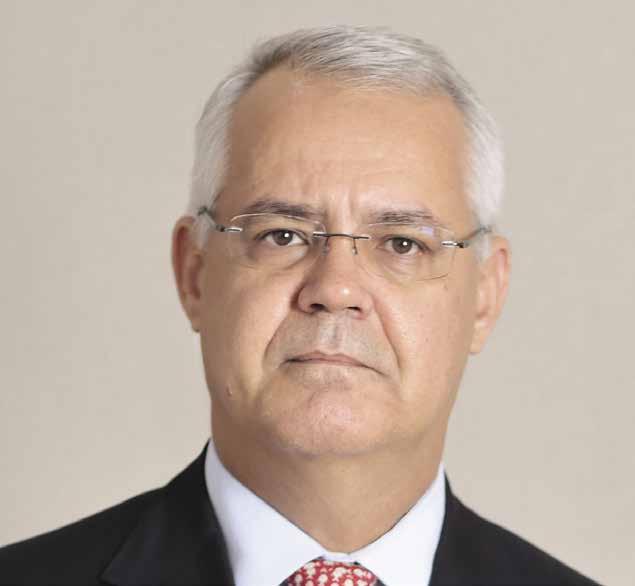OPINIÃO
SEBASTIÃO BUGALHO, ANALISTA POLÍTICO P O L I T I C A L A N A LY S T
A GUILDA EUROPEIA THE EUROPEAN GUILD
Q
uando Ursula Von der Leyen tomou posse como presidente da Comissão Europeia, Bruxelas surpreendeu-se com o arrojo (ou com a ingenuidade) de uma proposta: Von der Leyen, ex-ministra da Defesa alemã, anunciava uma “Comissão mais geopolítica”. Volvido pouco mais de um ano, a afirmação foi ingloriamente testada por velhos adversários e novos problemas. A pandemia é o inevitável protagonista desse acentuar, tendo acelerado alterações nos equilíbrios de poder entre a Europa e as demais superpotências que já antes decorriam. Se essas eram placas tectónicas em movimento, a covid-19 foi um sismo que veio evidenciar essas mudanças. O abanão sentiu-se e os governos nacionais agarraram-se ao que puderam. Para os Estados-membros da União Europeia, o instinto inicial foi um misto de esperança comunitária com realismo protecionista. Isso viu-se a leste, onde as doações chinesas foram exultadas com pompa mediática, ao centro, onde a falta de solidariedade entre vizinhos foi desoladora, e um pouco por todo o lado, perante a falta de vacinas garantidas pela União e a procura de alternativas por parte de cada um, face a esse falhanço. Nos idos de março, mais de um ano após a chegada do coronavírus a solo europeu, o governo alemão dava uma terceira vaga como inevitável devido a essa falta de vacinas. Se tal não corresponde ao maior fracasso 18
W
hen Ursula Von der Leyen took office as president of the European Commission, Brussels was surprised by the boldness (or ingenuity) of a proposal: Von der Leyen, a former German defence minister, announced a “more geopolitical Commission”. Little over a year later, this claim was ingloriously put to the test by old opponents and new problems. The pandemic is the inevitable protagonist of this increase, having accelerated changes in the balance of power between Europe and the remaining superpowers that were already underway. If these were the moving tectonic plates, then covid-19 was an earthquake that highlighted these changes. The shake was felt and the national governments clung to what they could. For EU member states, the initial instinct was a mix of community hope with protectionist realism. This was seen in the East, where Chinese donations were exulted with media hype, in the centre, where the lack of solidarity between neighbours was heart-breaking, and nearly everywhere, in the face of the lack of vaccines guaranteed by the Union and the demands for alternatives from everyone, in the face of such failure. In March, more than a year after the coronavirus arrived on European soil, the German government considered a third wave inevitable due to this lack of vaccines. If this does not correspond to the biggest political failure of the European project since its foundation, anything else hardly will. The Leyen Commission, which was able (Texto escrito ao abrigo do novo acordo ortográfico)



















